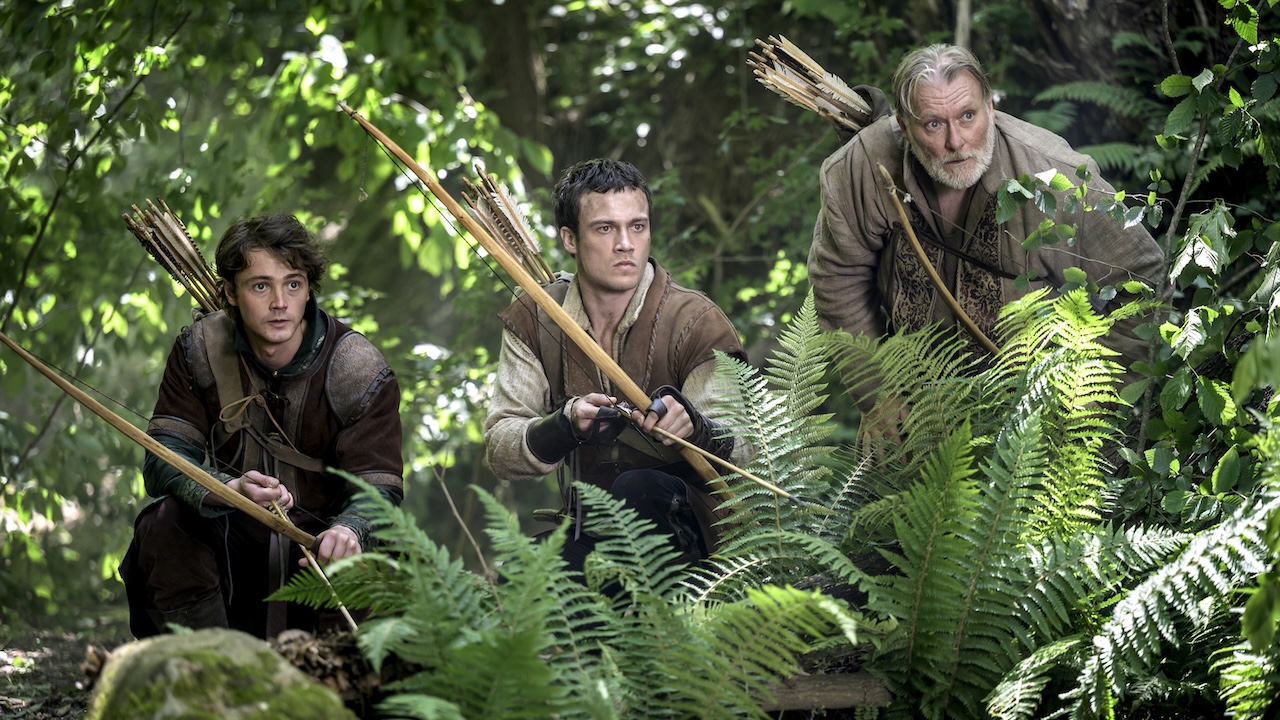Odds are anyone seeing the 3D Justin Bieber documentary Never Say Never has no choice in the matter: either they've got a terrible case of Bieber Fever and will see anything the 16-year-old pop star does, or they're the parent of someone who fits that description. The weeks of hype leading up to the film have shown us legions of screaming girls in purple 3D glasses and Bieber himself smiling, shellshocked, amid the chaos; why would any self-respecting childless adult go anywhere near this?
It's a valid question that Never Say Never, a bouncy and entertaining but truly shallow look at one of the world's most famous teenagers, only partly answers. A fairly intimate look at Bieber's life on the road and his beginnings as just another talented kid growing up in small-town Canada, the movie is part-documentary and part-concert film that both embraces and pokes fun at the teenybopper mania that Bieber and his handlers have created. There's a loose countdown structure as Bieber prepares for his first concert at Madison Square Garden, but director John Chu is mostly content to zip around Bieber's life and the people who surround him, mixing in live performances with the interviews and fly-on-the-wall recordings. He doesn't exactly pander to the audience, but it's probably no coincidence either that Bieber takes off his shirt twice in the first 10 minutes.
The movie indulges in lengthy concert performances or discussions of Bieber's fashion sense-- at 105 minutes it's about 15 too minutes too long-- but the extra time allowed me to think about the meta-narrative at play. I found myself musing on the way Bieber, as a pop star and a commercial product, perfectly straddles the line between old media and new. He famously first got notice by posting his performances on YouTube, but his rise to monetary success came through the creaking old record industry, and the time-honed gambit of playing at radio stations and state fairs. Bieber uses Twitter to reach out to his fans and sells far more downloads than physical albums, but his teen dream appeal is practically identical to Donny Osmond's or Elvis's. Even his big hit song "Baby" is such a classic pop tune it could easily have been sung by The Jackson Five.
Never Say Never doesn't hide the fact the Bieber is an industry to himself, and that his early fame could have its consequences-- handlers like his voice coach "Mama" Jan Smith repeatedly insist that they are trying to keep him grounded, and manager Scooter Braun makes an oblique reference to the devastating effect that early fame had on another teen idol, Michael Jackson. But the movie also makes a surprisingly compelling argument that Bieber is an ordinary kid; scenes of him hanging out with his childhood friends or being told to make his bed feel a little staged, but his enthusiasm and occasional mistakes in judgment seem like genuine teenage behavior. It's obvious that his supreme performer's confidence has been there since birth-- there's adorable home movie footage of him pretending to conduct "O Canada" before a youth baseball game-- but by the end of Never Say Never he seems more like the most endearing kid from your sophomore class than a jury-rigged show pony trotted out for mass consumption. Bieber emerges, in other words, as an actual human being.
By the time the big Madison Square Garden show rolls around the glossy 3D concert footage takes control, and even though the shrieking girls in the audience had me literally plugging my ears, by then they too had won me over; the film's man-on-the-street interviews with female Bieber fans involve a lot of screaming and crying, yes, but also that unvarnished emotion that is at its sharpest when you're 11 years old. The camera lingers on all those tearstained faces to help build the myth of Bieber, sure, but it's impossible to deny those girls their puppy love. The skeptics will probably not be convinced by Never Say Never, and it's difficult for anyone beyond puberty to buy into the myth the way those girls have, but the movie serves as a surprisingly compelling window into a phenomenon that, at its core, is as old as pop itself.
Your Daily Blend of Entertainment News
Staff Writer at CinemaBlend


